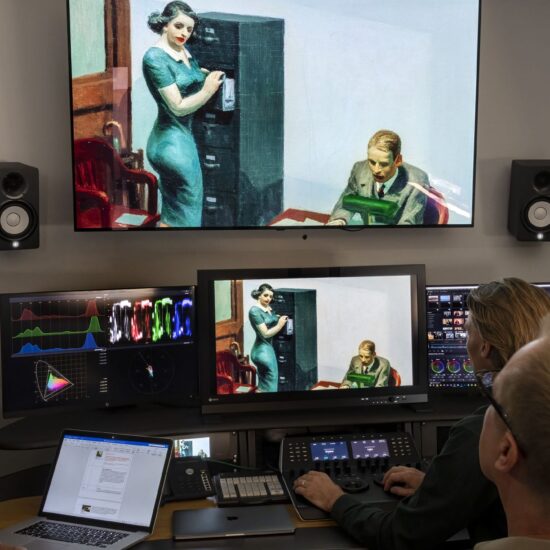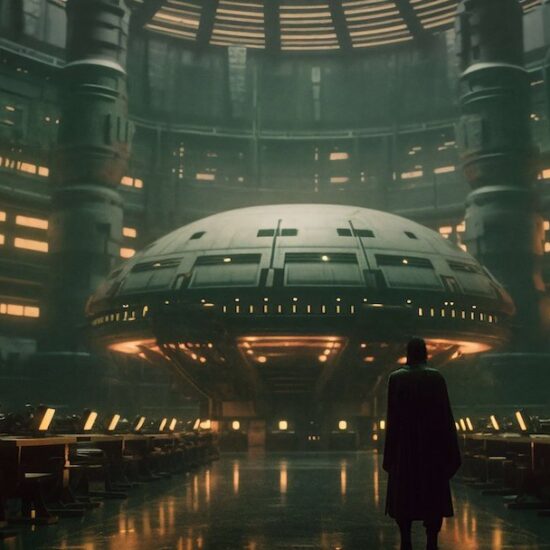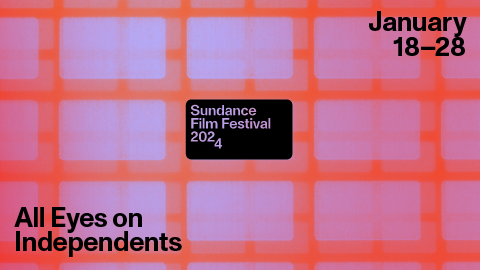
The Thessaloniki Documentary Festival kicks off its 25th edition Thursday at a time when the nonfiction genre has arguably reached unprecedented heights.
This year’s festival, which takes place March 2 – 12 in the seaside Mediterranean city, unfolds just days after veteran French docmaker Nicolas Philibert won the Golden Bear in Berlin for his documentary about a Paris mental health care facility, “On the Adamant.” The award capped a fortnight in which Sean Penn’s gonzo doc about Ukrainian president Volodymyr Zelenskyy, “Superpower,” also generated plenty of buzz (albeit lukewarm reviews).
Meanwhile, Cameroon’s Cyrielle Raingou took home Rotterdam’s Tiger Award just a few weeks earlier for “Le Spectre de Boko Haram,” a riveting view of terrorism seen through children’s eyes. And one summer ago, Laura Poitras triumphed on the Lido with “All the Beauty and the Bloodshed,” her docu-portrait of the photographer and activist Nan Goldin, which won the Venice Film Festival’s Golden Lion award.
“It’s no coincidence,” says Thessaloniki festival director Orestis Andreadakis, of the dramatic ascent of documentary films at world cinema’s most prestigious fests. “Documentary, the last 10 years, 20 years, it’s a different genre. And I think it’s much more important than fiction films.
“Documentary directors and producers, because they’re more independent, because they’re more flexible, because they don’t need so much money, they invent new things,” he adds. “They are audacious. They’re going to look for new forms of cinematic direction.”
The festival opens with the world premiere of “La Singla,” by Spanish filmmaker Paloma Zapata, which tells the story of the groundbreaking flamenco dancer Antonia Singla, who was born deaf and revolutionized the world of flamenco, before disappearing from the stage before her thirtieth birthday. It concludes with the international premiere of Johan Kramer’s “My Pet and Me,” a light-hearted and heart-warming exploration of the loving bonds between humans and their pets.
Across its three competitive strands, the Thessaloniki Documentary Festival will present 34 feature films, with 32 of those celebrating their world, international or European premieres. Other highlights will include tributes to the Austrian documentary filmmaker Nikolaus Geyrhalter, and Greek director Stavros Psyllakis, whose films followed everyday people caught up in over-the-edge situations.
The festival will also honor the memory of the city’s once-thriving Jewish community with the homage “Adio Kerida: From Thessaloniki to Auschwitz – 80 Years,” which will take place eight decades after the first train departed the city bound for Nazi concentration camps. Andreadakis describes it as an “obligation” for the festival to pay homage to that somber anniversary, one year after it collaborated with Greek filmmakers Syllas Tzoumerkas and Christos Passalis on their hybrid docudrama “The City and the City,” which recounted the largely untold story of the atrocities committed against Thessaloniki’s Jewish population during World War II.
The program at this year’s Thessaloniki Documentary Festival showcases a range of filmmakers exploring stories of oppression and emancipation, of historical traumas and human triumphs, and of the struggle to preserve life as we know it on a planet hurtling toward extinction.
Among the selections from the international competition celebrating their world premieres is “The Last Seagull,” from veteran docmaker Tonislav Hristov, whose portrait of a male escort on Bulgaria’s Sunny Beach offers a multilayered allegory on life in the Balkans and the modern world. Tünde Skovrán’s “Who I Am Not,” from executive producer Patricia Arquette, tells the story of an intersex beauty queen in South Africa who proves that our world and our lives can’t be contained by simple, binary definitions.
Fresh off a premiere at the Berlin Film Festival, “Under the Sky of Damascus,” from Oscar-nominated director Talal Derki (“Of Fathers and Sons”) and Heba Khaled, follows a group of Syrian women who embark upon on a radical project to produce a play that lays bare a culture of misogyny and sexual abuse. Veteran American documentarian Ralph Arlyck offers a nostalgic and cinematic love letter to the passage of time with “I Like it Here,” which recounts the people, places and events that left a mark on the director’s life and inspired his five-decade career.
Meanwhile, Greek filmmaker Valerie Kontakos’ “Queen of the Deuce” (pictured), which premiered at DOC NYC, tells the story of Chelly Wilson, the queen of the porn industry in New York in the 1970s, who became an unconventional feminist icon.
That film is one of 61 feature-length and short documentaries screening this week in Thessaloniki, part of what Andreadakis sees as a clear-cut evolution in the industry since the festival first launched. “It’s changed a lot. If you go 20 years ago, 25 years ago, when we started the festival, Greek documentary was very primitive,” he says. “The Thessaloniki festival played a key role to help the Greek documentary community grow.”













